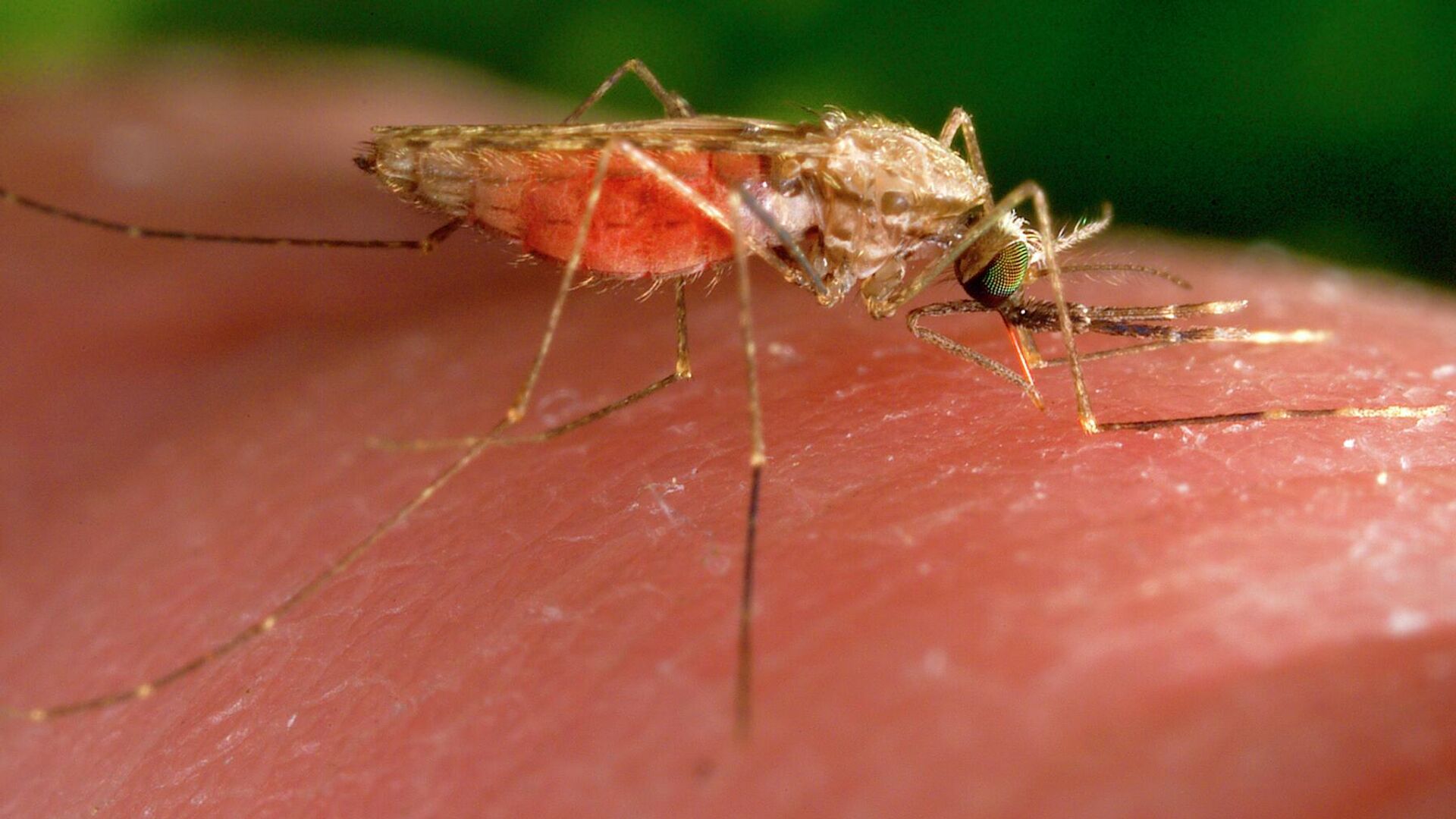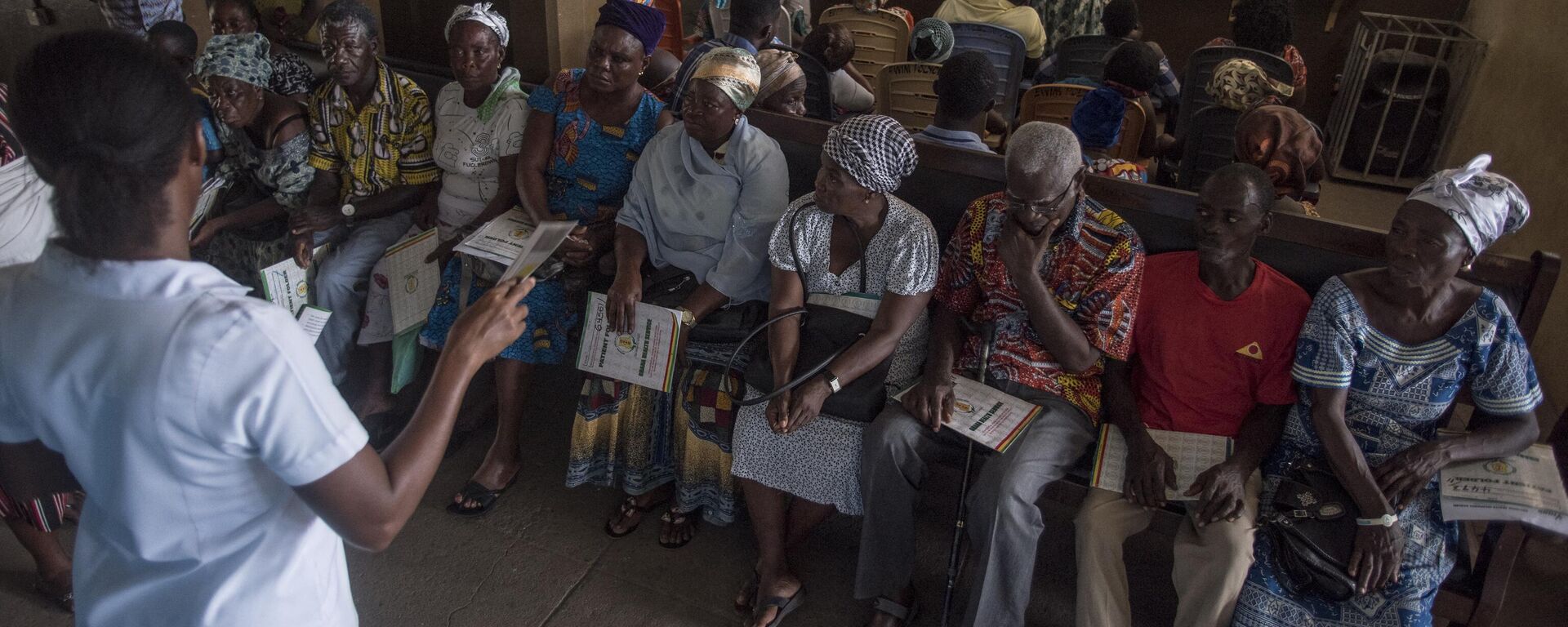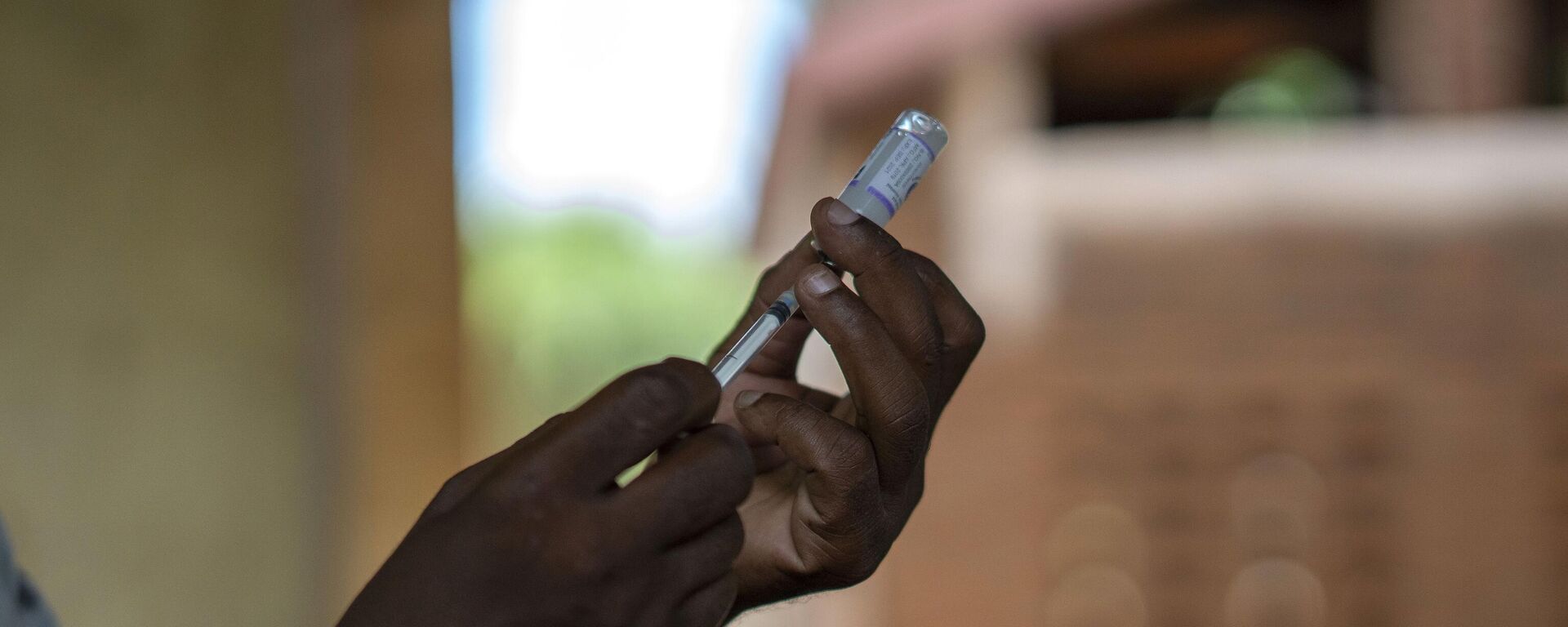https://en.sputniknews.africa/20230804/novel-approach-to-malaria-control-scientists-find-bacteria-that-suppress-transmission-1061061629.html
'Novel Approach for Malaria Control': Scientists Find Bacteria That Suppress Transmission
'Novel Approach for Malaria Control': Scientists Find Bacteria That Suppress Transmission
Sputnik Africa
The mosquito-borne disease found in tropical countries claims about 619,000 lives annually. The recent discovery made by a group of researchers from the GSK... 04.08.2023, Sputnik Africa
2023-08-04T13:59+0200
2023-08-04T13:59+0200
2023-08-04T13:59+0200
international
health
healthcare
disease
malaria
vaccine
science
medicine
burkina faso
spain
https://cdn1.img.sputniknews.africa/img/07e7/08/04/1061062527_0:96:1801:1109_1920x0_80_0_0_a4527010dbab8d2a212b0712000c74ed.jpg
A naturally occurring bacterium discovered by GSK (GlaxoSmithKline) scientists – Delftia tsuruhatensis Tres Cantos 1 (TC1) – has the potential to suppress the transmission of malaria parasites to humans via mosquitos, a new study published in the journal Science on August 3 has indicated.The researchers suggested that their findings could be successfully translated to the field of malaria control and thus contribute to the elimination of the deadly disease. The bacterium was discovered by scientists at GSK's Global Health Medicines R&D site in Tres Cantos, Spain. Working on next-generation malaria medicine, they noticed that a colony of mosquitoes had stopped carrying malaria parasites. The mosquitoes were no longer able to sustain P. falciparum infection, the most prevalent and fatal type of malaria. Further experiments confirmed that a specific strain of Delftia tsuruhatensis, TC1, had stopped the development of malaria parasites in the mosquitoes' gut. In collaboration with Johns Hopkins Malaria Research Institute, the GSK scientists discovered that the bacteria work by secreting a small molecule called harmane, which inhibits the early stages of parasite growth in the mosquito midgut. It was indicated that the bacterium stably populates the mosquito gut, while P. falciparum inhibition lasts for over 16 days and potentially for the entire mosquito lifespan.According to the researchers, Delftia tsuruhatensis, a naturally occurring bacterium, is widely distributed in various ecosystems, but mosquitoes do not release it with their saliva when feeding.More trials led by GSK are currently underway at a field research facility MosquitoSphere in Burkina Faso to assess efficacy, manufacturability and safety of using harmine at scale. The scientists suggested that TC1-based products could be used as a "novel approach for malaria control," becoming a new tool in the world's toolbox against the disease.In its latest World malaria report, the World Health Organization (WHO) stated that in 2021, there were 247 million cases, while the number of deaths globally stood at 619,000. The African continent was home to about 95% of all malaria cases and 96% of deaths.Although vaccines have been developed, they are still in the early stages of introduction, particularly in Africa. As of now, there are two malaria vaccines. The RTS,S, known as Mosquirix, was the first vaccine to be approved by the WHO for public use. Another vaccine, called R21/Matrix M, was greenlighted by Nigeria and Ghana, even before WHO approval.
https://en.sputniknews.africa/20230425/world-malaria-day-africas-path-to-eliminate-the-deadly-disease-1058801446.html
https://en.sputniknews.africa/20230422/more-african-nations-set-to-greenlight-new-malaria-vaccine-reports-indicate-1058775409.html
burkina faso
spain
Sputnik Africa
feedback@sputniknews.com
+74956456601
MIA „Rossiya Segodnya“
2023
News
en_EN
Sputnik Africa
feedback@sputniknews.com
+74956456601
MIA „Rossiya Segodnya“
Sputnik Africa
feedback@sputniknews.com
+74956456601
MIA „Rossiya Segodnya“
international, health, healthcare, disease, malaria, vaccine, science, medicine, burkina faso, spain
international, health, healthcare, disease, malaria, vaccine, science, medicine, burkina faso, spain
'Novel Approach for Malaria Control': Scientists Find Bacteria That Suppress Transmission
The mosquito-borne disease found in tropical countries claims about 619,000 lives annually. The recent discovery made by a group of researchers from the GSK pharmaceutical company is seen as the basis for new anti-malaria treatements.
A naturally occurring bacterium discovered by GSK (GlaxoSmithKline) scientists –
Delftia tsuruhatensis Tres Cantos 1 (TC1) – has the potential to suppress the transmission of malaria parasites to humans via mosquitos, a new
study published in the journal Science on August 3 has indicated.
The researchers suggested that their findings could be successfully translated to the field of
malaria control and thus contribute to the elimination of the deadly disease.
The bacterium was discovered by scientists at GSK's Global Health Medicines R&D site in Tres Cantos, Spain. Working on next-generation malaria medicine, they noticed that a colony of mosquitoes had stopped carrying malaria parasites. The mosquitoes were no longer able to sustain P. falciparum infection, the most prevalent and fatal type of malaria.
"The infection rate in the mosquitoes started dwindling and so by the end of the year the mosquitoes just would not be infected with the malaria parasite," said Janneth Rodrigues, one of the authors of the study.
Further experiments confirmed that a specific strain of Delftia tsuruhatensis, TC1, had stopped the development of malaria parasites in the mosquitoes' gut.
In collaboration with Johns Hopkins Malaria Research Institute, the GSK scientists discovered that the bacteria work by secreting a small molecule called harmane, which inhibits the early stages of parasite growth in the mosquito midgut. It was indicated that the bacterium stably populates the mosquito gut, while
P. falciparum inhibition lasts for over 16 days and potentially for the entire mosquito lifespan.
"Harmane was found to be a contact poison that could also cross the mosquito cuticle to kill developing malaria parasites," read the research.
According to the researchers, Delftia tsuruhatensis, a naturally occurring bacterium, is widely distributed in various ecosystems, but mosquitoes do not release it with their saliva when feeding.
More trials led by GSK are currently underway at a field research facility MosquitoSphere in Burkina Faso to assess efficacy, manufacturability and safety of using harmine at scale. The scientists suggested that TC1-based products could be used as a "
novel approach for malaria control," becoming a new tool in the world's toolbox against the disease.
"TC1, as an entirely novel approach for malaria control, has the potential to further reduce the huge burden of malaria in endemic countries and is more evidence that through deploying a range of prevention approaches, we may be able to finally eradicate this terrible disease," said Thomas Breuer, GSK's chief global health officer.
In its latest
World malaria report, the World Health Organization (WHO) stated that in 2021, there were 247 million cases, while the number of deaths globally stood at 619,000. The African continent was home to about 95% of all malaria cases and 96% of deaths.
Although vaccines have been developed, they are still in the early stages of introduction, particularly in Africa. As of now, there are two
malaria vaccines. The RTS,S, known as Mosquirix, was the first vaccine to be approved by the WHO for public use. Another vaccine, called R21/Matrix M, was greenlighted by Nigeria and Ghana, even before WHO approval.



